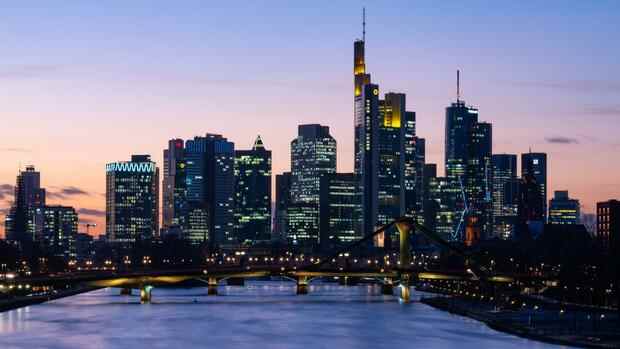Activist investors try to influence the strategic orientation of a company, for example by sitting on the supervisory board.
(Photo: dpa)
Frankfurt During the corona crisis, activist investors were cautious. But that’s over now. According to a study by the Boston Consulting Group (BCG), dozens of companies in German-speaking countries are being targeted by activists this year.
According to the analysis, 64 companies in Germany, Austria and Switzerland are “extremely at risk”. Activist investors are typically Anglo-Saxon hedge funds attracted by, for example, poor stock performance or corporate structural weaknesses.
They buy smaller shares and then try to influence the strategic orientation of the company, for example by having seats on the supervisory board. For the BCG experts, around 90 percent of conglomerates that are not focused on one business area are at risk.
“Over the past year, share prices have risen sharply, so there were relatively few points of attack for the activists. But that time is over, the price fluctuations on the stock exchanges are increasing again, there are phases of weakness. This means that the activist shareholders will increasingly report back, also in Germany,” says BCG partner Rüdiger Wolf.
Top jobs of the day
Find the best jobs now and
be notified by email.
In Germany, the investor Petrus Advisers recently confronted Aareal Bank with its demands, including for appointments to the supervisory board. In German-speaking countries, large corporations such as SAP, Deutsche Bank, Commerzbank, Rocket Internet, Scout24 and Nestlé had already made acquaintance with hedge funds and activist financial investors in the past.
Demands are rarely made public
At the beginning of February this year, financial circles considered RWE, Deutz and Max Automation to be companies that had been at risk for some time. According to BCG, activist investors were invested in 128 companies in German-speaking countries at the end of 2021, compared to 113 a year earlier.
At the same time, only 16 companies were publicly confronted with the activists’ demands, significantly fewer than in the previous year. According to insiders, most of the “interactions” took place behind closed doors.
“Although the number of new attacks has decreased in 2021, the number of existing participations by activist investors has continued to increase. That shows that many investors have come to stay,” explains consultant Wolf.
In addition, the hedge funds have new starting points for campaigns with the ESG criteria for ecological and social standards. According to the specialist service Insightia, demands related to the environment increased by 18 percent worldwide last year. The companies that have only recently been considered endangered by activist advances include Delivery Hero, Klöckner, Koenig & Bauer and Nordex in financial circles.
>>>Read also: How the CEO of the cloud company Box fended off an activist attack
The BCG study is based on 430 companies, each with a market capitalization of at least EUR 100 million and a free float of at least five percent. “In order to be able to assess whether a company is at risk, we look at nine categories. For example, it is examined whether the share price corresponds to the analysts’ targets and how high the debt ratio is within the capital structure,” says Johannes Burkhardt, co-author of the study.
In the case of companies from the industrial and consumer goods sectors, one often still finds the price discount due to the conglomerate structure. In the case of the local tech companies, for example, the share price plays a role compared to the peer group from the USA.
BCG recommends that boards of directors accept the rules of the capital market in order to prevent activist advances. This also includes communication with the shareholders, for example about the dividend policy. And you have to put innovations in the foreground in communication, for example when it comes to e-mobility solutions or digital applications.
More: After failed takeover bid: Investor attacks the supervisory board and board of directors of the bank.
